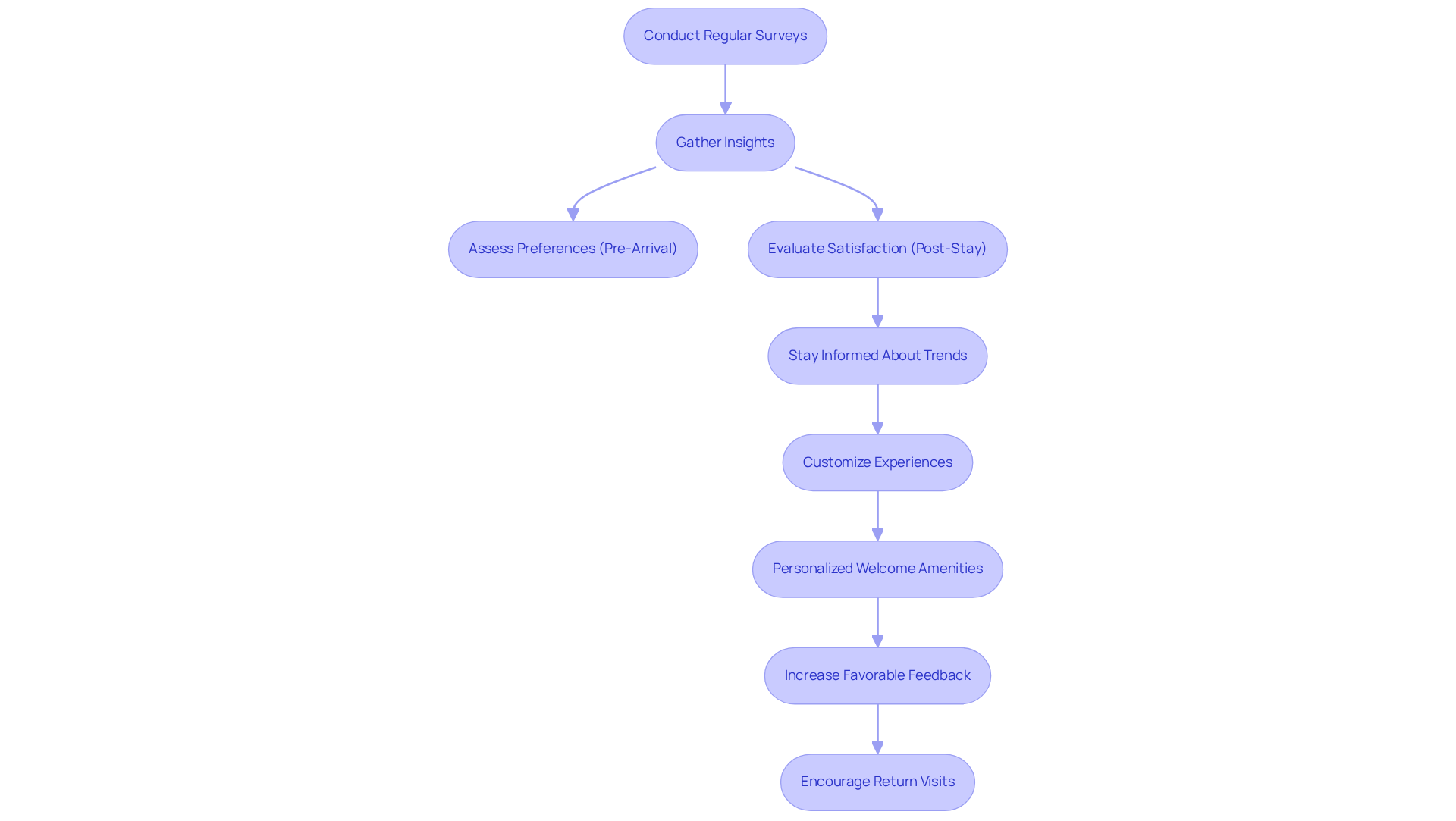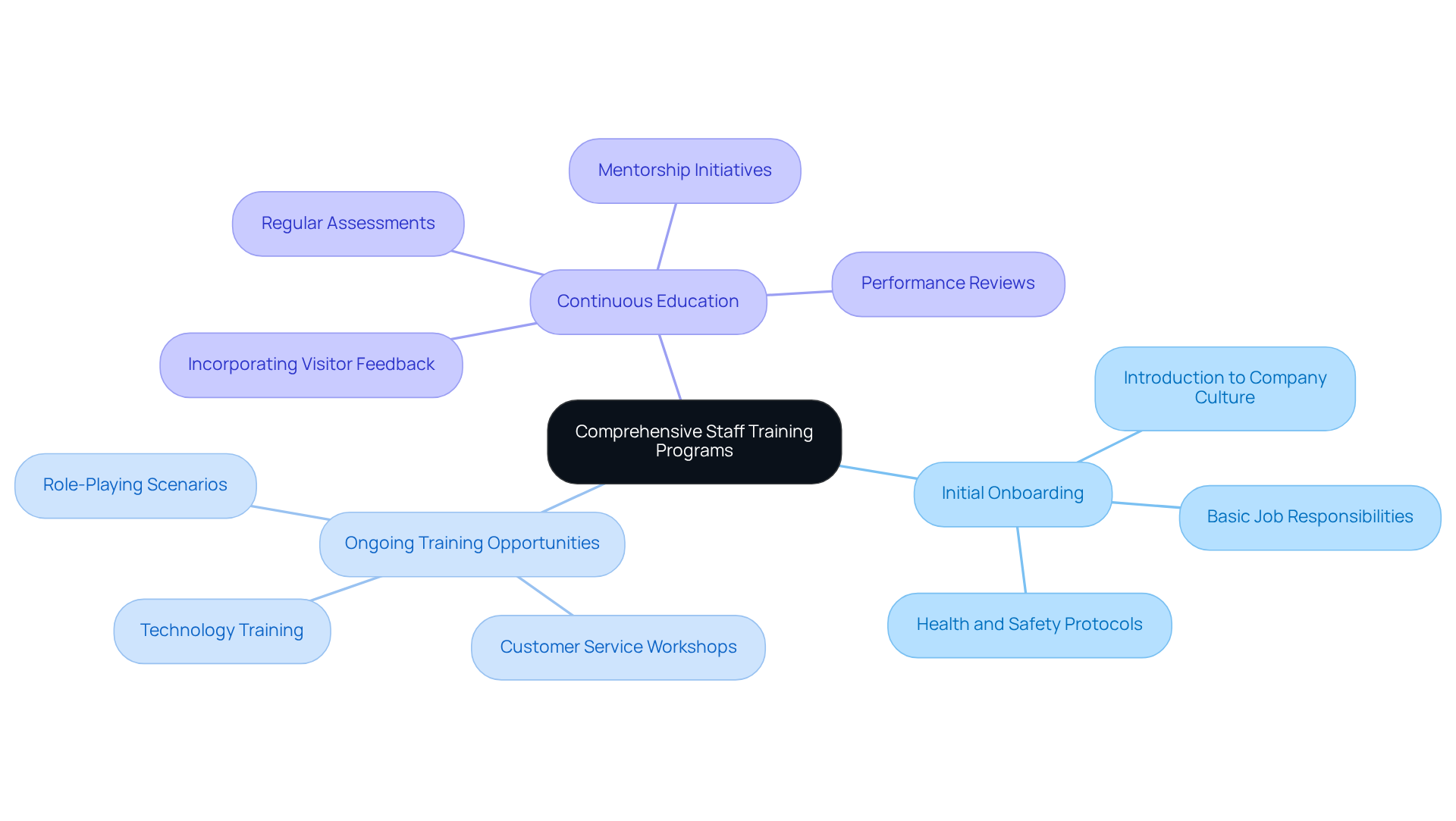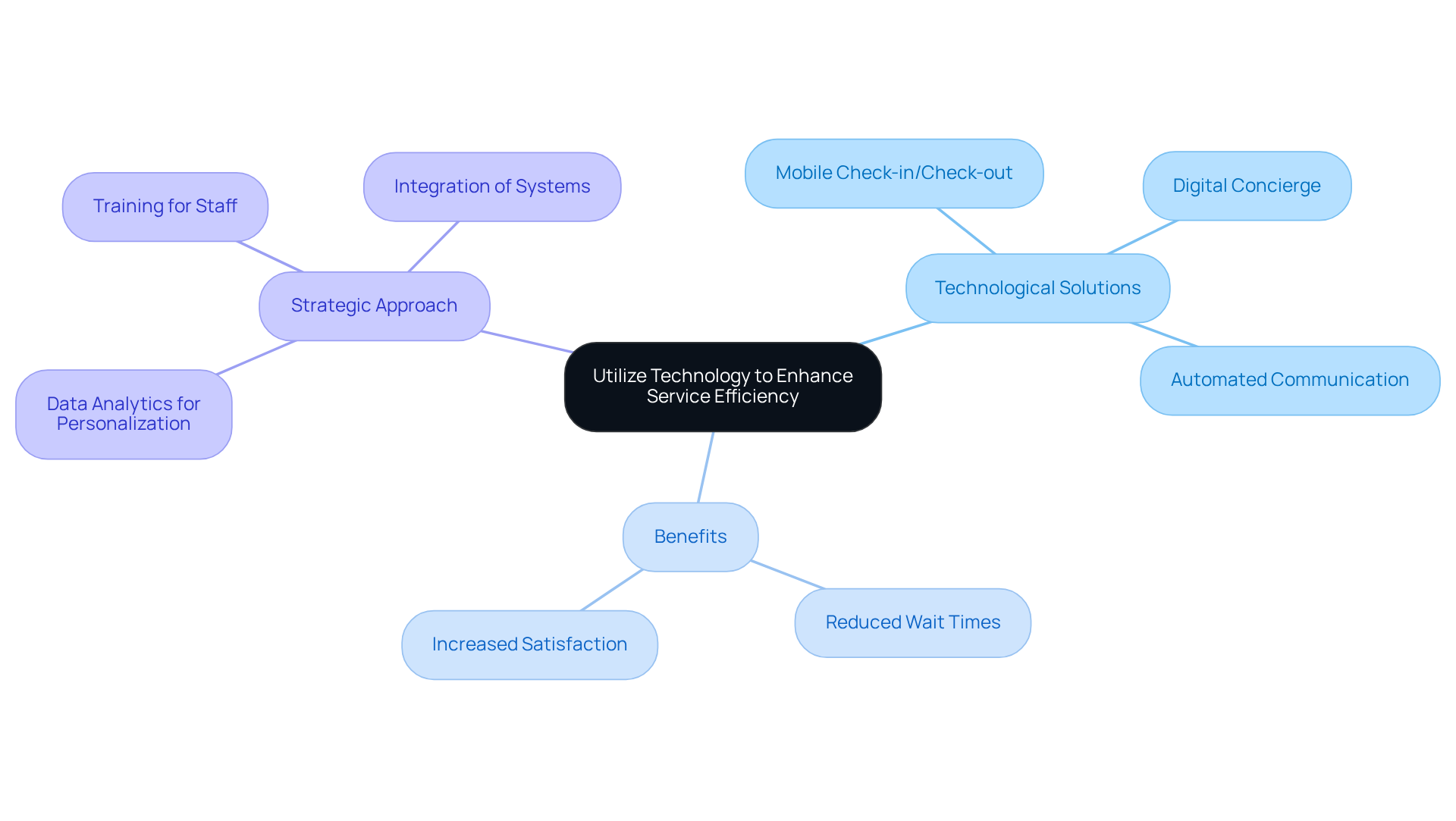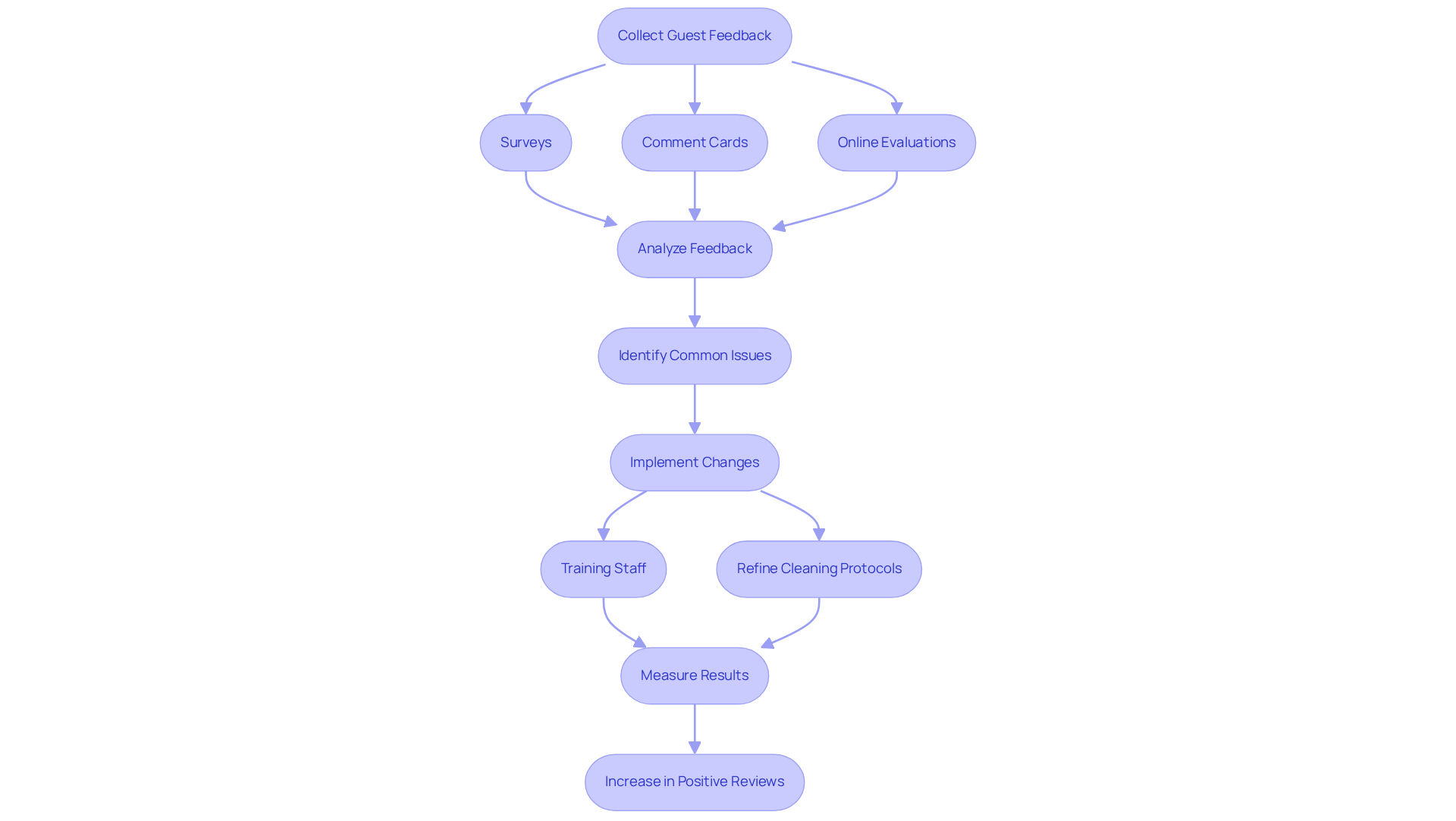The article delineates four pivotal strategies aimed at elevating hotel and room service excellence:
Each strategy is substantiated by compelling examples and statistics that underscore their efficacy. For instance, a hotel chain's visitor preference program has led to a remarkable 20% increase in favorable feedback, while the implementation of a mobile app has resulted in a significant 40% rise in guest satisfaction ratings.
In an industry where guest satisfaction is paramount, the pursuit of excellence in hotel and room service has never been more critical. Establishments increasingly recognize the necessity of not only meeting but exceeding guest expectations to cultivate loyalty and enhance their reputation. This article explores four key strategies that can transform service quality—from understanding client preferences and implementing robust staff training programs to leveraging technology and actively seeking guest feedback.
How can hotels effectively navigate this complex landscape to ensure that every visitor experience is both memorable and rewarding?
To effectively understand client expectations, hotels must conduct regular surveys and feedback sessions to gather insights directly from their patrons about hotel and room service. This encompasses pre-arrival communications to assess preferences and post-stay surveys to evaluate satisfaction levels. Staying informed about industry trends and benchmarks is essential for aligning service standards with customer expectations. For instance, providing customized welcome amenities tailored to visitor profiles can significantly enhance the initial impression and establish a favorable atmosphere for the stay. In fact, 85% of visitors indicate that customized experiences play a crucial role in their accommodation choice. By prioritizing visitor expectations, hotels and room service can foster a culture that is both responsive and adaptive, ensuring unforgettable experiences that encourage return visits.
A notable example is a hotel chain that launched a visitor preference program, resulting in a 20% increase in favorable feedback after personalizing room settings and amenities based on past stays. This underscores the substantial impact of understanding client expectations on achieving service excellence. Furthermore, as the hospitality industry anticipates growth in inbound tourism, particularly in the UK, comprehending and adapting to guest preferences will be vital for maintaining a competitive edge.

To implement effective staff training programs, hotel and room service must prioritize both initial onboarding and ongoing training opportunities. This includes:
Moreover, fostering a culture of continuous education through regular assessments and performance reviews helps personnel remain engaged and motivated. For instance, an establishment that introduced a mentorship initiative for new recruits experienced a remarkable 30% reduction in employee turnover, as staff felt more supported and prepared to meet client needs.
Furthermore, integrating visitor feedback into training sessions provides practical context and aids staff in understanding the impact of their work on visitor experiences. By emphasizing comprehensive training, hotel and room service staff can ensure that their teams are not only well-informed but also empowered to deliver exceptional support consistently.

Hotels must explore various technological solutions, including mobile check-in/check-out systems, digital concierge options, and automated visitor communication platforms. These innovations can significantly reduce wait times and elevate the visitor experience by providing immediate access to information and assistance. For instance, a hotel that implemented a mobile application for visitor amenities observed a remarkable 40% increase in satisfaction ratings, as guests appreciated the convenience of having features at their fingertips.
Moreover, leveraging data analytics empowers accommodations to anticipate visitor needs and preferences, allowing for more personalized service. By integrating technology into their operations, hotels can not only improve efficiency but also create a more engaging and rewarding experience for their guests. This strategic approach not only addresses current challenges but positions establishments to thrive in a competitive landscape.

To enhance service quality, establishments must implement a structured response system that encompasses surveys, comment cards, and online evaluations. This approach facilitates the collection of valuable insights from visitors, allowing accommodations to identify trends and effectively address common issues. For instance, an establishment that meticulously analyzed visitor feedback discovered a recurring concern regarding room cleanliness. By instituting targeted staff training and refining cleaning protocols, the establishment realized a remarkable 25% increase in positive reviews related to cleanliness within just three months.
Establishing a response system where visitors can witness tangible changes stemming from their suggestions significantly boosts loyalty and encourages return visits. As highlighted by industry experts, prioritizing client input as a cornerstone for continuous improvement ensures that establishments remain agile and responsive to the evolving needs and expectations of their customers. In 2025, statistics indicate that accommodations employing effective response systems can elevate visitor satisfaction and retention rates, ultimately driving revenue growth. Moreover, consistently monitoring review platforms to address guest comments is vital for safeguarding an establishment's reputation. Timely responses to feedback can avert potential reputational harm, ensuring that hotels not only gather insights but also act on them decisively.

Enhancing hotel and room service excellence is pivotal for creating memorable guest experiences and fostering loyalty. By understanding guest expectations, implementing robust staff training programs, leveraging technology, and actively seeking feedback, hotels can significantly elevate their service standards. This multifaceted approach not only meets but anticipates the needs of visitors, ensuring that every aspect of their stay is tailored and exceptional.
Key strategies discussed include the importance of personalized guest interactions, achievable through feedback and preferences. Comprehensive staff training equips employees with the necessary skills to deliver outstanding service, while technology streamlines operations and enhances efficiency. Furthermore, a structured feedback system allows hotels to continuously refine their services based on real-time insights from guests, leading to sustained improvements and increased satisfaction rates.
In a competitive hospitality landscape, a commitment to excellence in service is essential. By prioritizing these strategies, hotels can foster a culture of continuous improvement that not only meets current expectations but also sets new benchmarks for industry standards. Embracing these practices will enhance the guest experience and drive long-term success and profitability in the hospitality sector.
How can hotels understand guest expectations?
Hotels can understand guest expectations by conducting regular surveys and feedback sessions to gather insights directly from patrons about hotel and room service. This includes pre-arrival communications to assess preferences and post-stay surveys to evaluate satisfaction levels.
Why is it important for hotels to stay informed about industry trends?
Staying informed about industry trends and benchmarks is essential for aligning service standards with customer expectations, which helps hotels provide services that meet or exceed what guests anticipate.
What impact do customized experiences have on guest satisfaction?
Customized experiences significantly enhance the initial impression of a stay, with 85% of visitors indicating that these personalized experiences play a crucial role in their accommodation choice.
Can you provide an example of a successful guest preference program?
A notable example is a hotel chain that launched a visitor preference program, which resulted in a 20% increase in favorable feedback after personalizing room settings and amenities based on past stays.
How does understanding client expectations contribute to service excellence in hotels?
Understanding client expectations fosters a culture that is responsive and adaptive, ensuring unforgettable experiences that encourage return visits, ultimately leading to service excellence.
Why is adapting to guest preferences important for the hospitality industry?
As the hospitality industry anticipates growth in inbound tourism, particularly in the UK, comprehending and adapting to guest preferences will be vital for maintaining a competitive edge.
Transform your group booking strategies with Lights On and watch your occupancy soar.